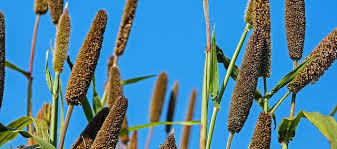Howard-Yana Shapiro, Chief Agricultural Officer of Mars, writes on Farming First about how orphan crops can benefit African farmers and the wider world.
Africa has thus far missed out on having its own ‘green revolution’. One reason for this is that it has no large, homogenous ecosystem, such as India’s Deccan Plateau. Any approach to boost productivity and food security must fit Africa’s myriad, small and distinct ecosystems.
The term agroecology refers to using ecological processes in agriculture, and maintaining balanced and healthy ecosystems. Pursuing an agricultural revolution that makes use of African crops that are already adapted, already grown and eaten by local farmers, would therefore be a good place to start.
At the African Orphan Crops Consortium (AOCC) our goal is to improve these varieties – “orphan” in that they have received very little scientific attention – so that they are more nutritious, higher yielding and hardier in the face of weeds, pests and the changing climate that is already altering Africa’s smallholder cropping systems. We do this by working to sequence the genomes of 101 of these important African orphan food crops and making the data publicly available, and training African scientists to make rapid improvements to them, benefitting smallholder farmers and consumers across the continent.
This plan was hatched back in 2011 by myself at Mars, Incorporated, Ibrahim Mayaki at the New Partnership for Africa’s Development, and Tony Simons, Director General of the World Agroforestry Centre (ICRAF). It quickly won the backing of the African Heads of State meeting at the African Union Assembly. Today the consortium contains 15 government organisations, scientific and agricultural bodies, universities, companies, regional organisations and NGOs, along with a network of 20 agricultural and horticultural organisations.
The AOCC’s African Plant Breeding Academy (AfPBA), based at ICRAF in Nairobi, will have trained 84 of its target 250 African plant scientists to work on the genome ‘maps’ by the end of 2018.
This approach could benefit the 600 million who constitute Africa’s rural population, most of whom grow much of their own food.
How does this relate to agroecology?
First, more than a quarter of the chosen species are trees, such as the baobab, the leaves of which contain twice as much calcium as spinach, three times the vitamin C of oranges and four times more potassium than a banana. Many of these tree crops are native to their ecosystems and provide other benefits, such as shade, water management and food for wildlife. Our work serves to preserve and improve these species, so they can continue to perform these important natural functions.
Second, many of the crops being sequenced have been in their given regions for a few centuries, are non-invasive and do not harm the local ecosystems. A cornerstone of agroecology is to maintain balance in ecosystems. Protecting and improving native crops will lead to increased diversity on farms, which will contribute to this goal.
Finally, using genetic interventions to make these crops more resilient and adaptable to a changing environment often means farmers need to apply fewer additional inputs to them in order to harvest a bumper crop.
Africa seems unable to get enough of the orphan crops approach. Two members of the 2017 class have started a continuing education program for MS-level scientists in their home country of Ethiopia. Four graduates from West Africa are collaborating to raise funding for training more than 70 graduate students on breeding of orphan crops. Members of the 2017 class are establishing an African Plant Breeders Association to cover the whole continent.
The benefits of orphan crops
The AfPBA and its lab have some of the best sequencing equipment in the world, certainly the best in Africa. Students – and these students are already among the best plant scientists in their countries – can use the equipment, but graduates also continue to have access to it.
One great benefit of this approach to education is that it is either done locally by AfPBA graduates or in Nairobi. The plant scientists are not taken to Europe or the United States, only to stay and contribute to Africa’s brain drain.
The UN Food and Agriculture Organization (FAO) decided recently to join the consortium. This has led to an ambitious letter of intent between the two organizations. It calls upon the two to work together to assist FAO member countries to develop and implement appropriate policies, regulations and laws that facilitate the genetic improvement of orphan crops; to strengthen institutional and human capacities of FAO member countries activities for research and development, especially in molecular genetics, plant breeding and seed delivery systems, and to advocate for enhanced crop diversification, crop rotations, associations and crop sequencing in a way that orphan crops are integrated and can become part and parcel of sustainable cropping systems.
We believe this could help spread the benefits of orphan crops throughout the planet. Already there has been talk of a Chinese Orphan Crop Consortium and an Indian Orphan Crop Consortium.
As The Economist’s science editor commented after a visit to our facility last year:
“Bananas, mangoes, pineapples and pawpaws are all tropical fruit that have gone global. If some of Africa’s orphan crops, suitably improved by genetic knowledge, were to follow suit, the benefits to African farmers would be huge.”
This future is within grasp, and can be done by harnessing the power of what nature already has to offer.


